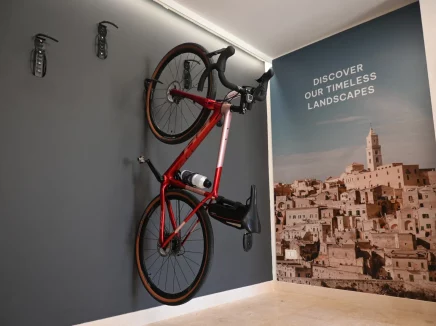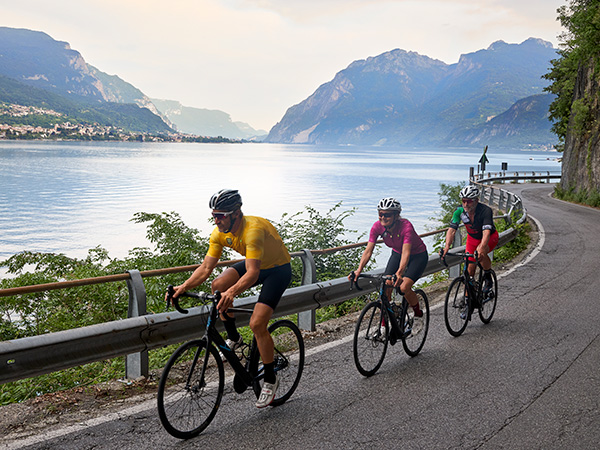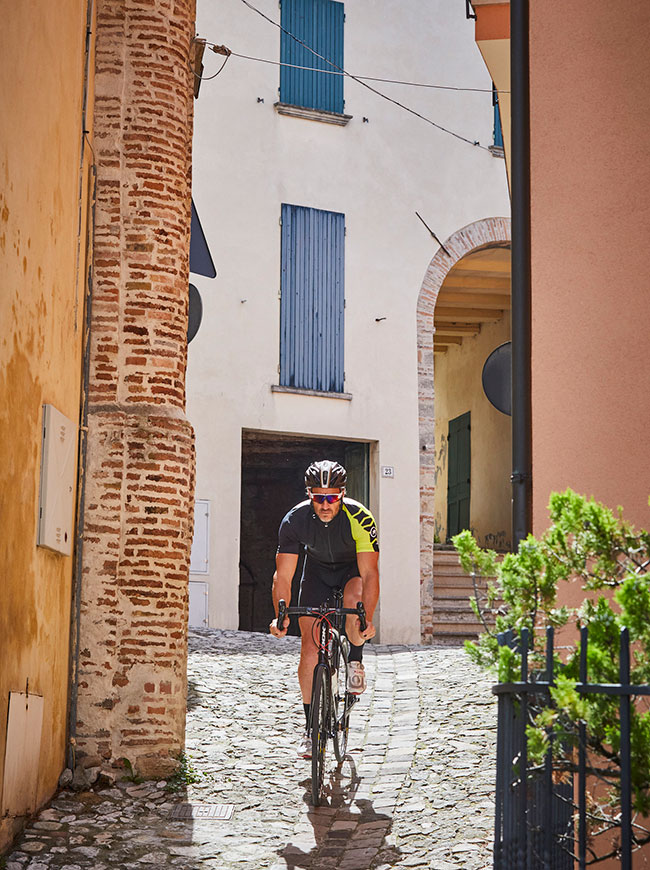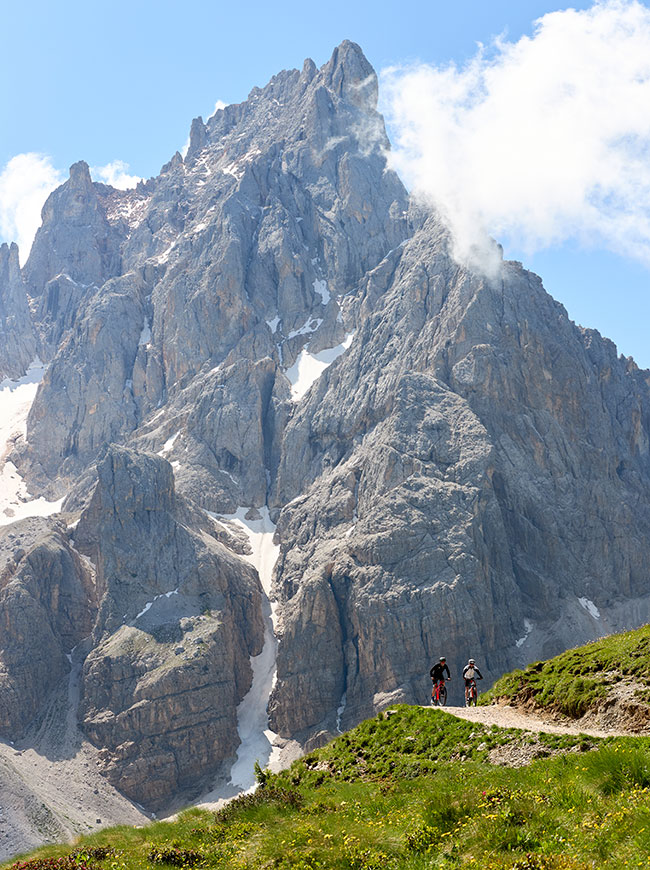Cycling holidays in Basilicata
 Bike Hotels1
Bike Hotels1 SeasonMar-Nov
SeasonMar-NovCycling in Basilicata is an experience that touches the heart and soul, where every turn of the pedals reveals breathtaking views and corners of unspoilt nature. Imagine riding along winding roads, immersing yourself in the…
Cycling in Basilicata is an experience that touches the heart and soul, where every turn of the pedals reveals breathtaking views and corners of unspoilt nature. Imagine riding along winding roads, immersing yourself in the intense scents of Basilicata, a land of contrasts and surprises. Admire landscapes that change with every turn, from the green Lucanian forests to the snow-capped peaks of the Pollino, from ancient towns to seaside villages perched on the Ionian coast. This region, still little known to mass tourism, will win you over with its authentic charm and warm hospitality.
Basilicata is a paradise for those who love challenges and varied routes. From the Tyrrhenian coast of Maratea, with its enchanting beaches and picturesque fishing villages, to the quiet inland roads leading to Matera, the UNESCO heritage city of the Sassi, every route is an adventure to be experienced. Don’t miss the opportunity to visit Craco, the famous ghost town, and to cycle through the Pollino National Park — the largest in Italy.
Tackling the challenging climbs of the ‘Lucanian Dolomites‘ or the rolling roads that meander through vineyards and olive groves requires good physical preparation, but every effort will be rewarded by unforgettable vistas and the chance to discover timeless places. If you prefer a more relaxing experience, the coastal roads offer gentler routes that are nonetheless rich in beauty and history.


Food
Pasta with peperoni cruschi
An iconic dish of Lucanian cuisine is pasta with ‘peperoni cruschi’. These dried red peppers, typical of the Senise area in the province of Potenza, are gently fried until crispy and then crumbled over pasta. The traditional recipe calls for spaghetti or orecchiette pasta, garlic, extra virgin olive oil and a sprinkling of cacioricotta cheese. This simple but delicious dish encapsulates all the essences of Basilicata.
Strascinati con la mollica
Strascinati are a variety of handmade pasta, similar to orecchiette but larger and flatter. The traditional preparation sees them accompanied by a sauce of fried breadcrumbs, garlic, chilli pepper and anchovies. The simplicity of the ingredients enhances the flavour of the pasta, in a dish that tells the story of Lucanian cuisine, straightforward but rich in taste, where every ingredient is made the most of.
Baccalà alla lucana
Baccalà alla lucana (salt cod in Lucanian style) is a dish that has its roots in the region’s rural tradition. The salt cod, after being soaked, is cooked with tomatoes, cruschi peppers, black olives, capers and potatoes. This rich and tasty dish was often prepared for festivals and special occasions, and represents the perfect combination of sea and land flavours.
History & Culture
Basilicata is a land that has seen many civilisations pass through, each of which has left indelible traces. From the ancient Greek colonies of Metaponto and Heraclea, to the Roman influences visible in the remains of cities such as Venosa, to the Middle Ages when the region was peppered with castles and fortified villages. The history of Basilicata is a story of resistance and adaptation, of communities that have been able to preserve their cultural identity despite their difficulties.
One of the most significant events in Basilicata’s recent history was the recognition of Matera as a UNESCO World Heritage Site in 1993 and as European Capital of Culture in 2019. Matera, with its ancient Sassi carved into the rock, is an extraordinary example of human adaptation to a difficult environment and has attracted international attention for its unique beauty and fascinating history. The region is also famous for its rituals and traditions, such as the celebration of the Madonna di Viggiano, which has its roots in ancient times and continues to be a moment of strong cultural identity for the people of Lucania.
Bike hotels in Basilicata
 9.3 / 10
9.3 / 10 4.5 / 5
4.5 / 5




Matera, Basilicata
Open all year round






